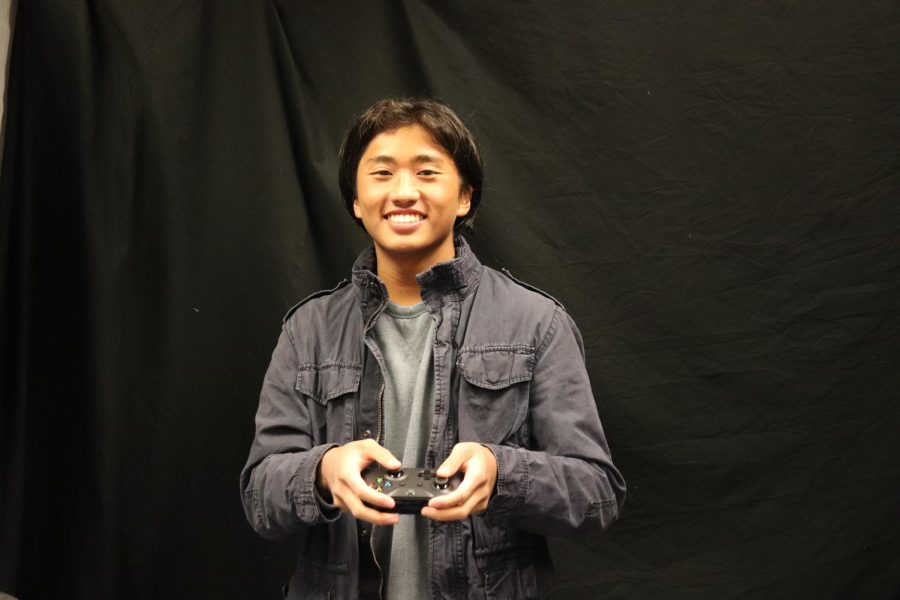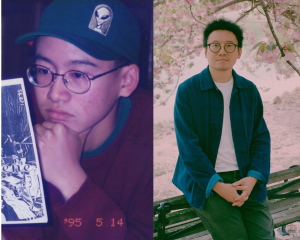The art of creating problems by running away
I consume media mainly to escape the dull routine of my daily life.
May 3, 2022
The incessant noise that often fills my head with doubts and carries my pessimistic attitude towards life is briefly lost in the wind as I ride out my fantasies as an outlaw during America’s gilded age in Red Dead Redemption 2, or lose myself in the philosophy of consciousness in the technological dystopia of Westworld. People often have different reasons to indulge and consume media and entertainment: some find it as a good distraction or merely seek entertainment, while others like to ponder about the messages behind their favorite video games or books — I do it for all the above, but mainly to escape the mundane routine of my daily life.
When I was five years old, my father bought me my first video game console, the Xbox 360. I remember countless hours spent exploring and immersing myself in Lego games and opening Christmas presents to find a shiny new game disc. I remember the days in primary school when I would ponder my future careers; perhaps a police officer, a fireman, a paleontologist, or even an astronaut. Back then, I never thought about the nuances of my experiences: relationships, life, death, climate change or the next presidential election. I was just a kid who really liked playing video games. The problems I concerned myself with then consisted of which meal to choose at the lunch line that day. I guess it just comes with growing older, the scaling of your problems and walking up those endless flights of stairs.
The world had felt like all the cogs and gears were in working order; it was natural and easy to follow. But as I grew older, my perspective started to shift and become more complex. The hopeful optimism I once held for my future life and the world soon shattered like glass. The increasing prevalence of global climate change, the threats of nuclear war and the refusal of nations to work toward the common good have created a generation of young people characterized by traits of powerlessness, uncertainty and pessimism. After all, what is the point of going through 13 years of K-12 schooling, possibly four to eight years of higher education, if all of that time and effort will amount to nothing? Why should I not just sit in my room, close the blinds and pick up that controller?
When I enter fictional worlds, it gives me something to cling to. Whether through characters, music or even the environment, I always find something that parallels and exceeds what I experience in real life. The thing about fiction though, is that it is fiction: Characters, worlds and music meticulously crafted to provide the best entertainment for any prospective audience. Genres, such as science fiction, fantasy, and horror, all stem from the human desire to deviate from real life, to go beyond the restrictive and disappointing borders of reality. The manufactured nature of entertainment and media makes it even harder to avoid; characters have their own motivations, personalities, lives, and conflicts which easily allow for empathy. These idealized worlds crafted by artists shape and influence our own perspectives of our world, often leaving us yearning for something more.
As I whisked through middle school I often found myself indulging in online multiplayer games, like Overwatch and Titanfall. I would hop on discord calls and play with my friends and sometimes we had what I like to call ‘heated gamer moments’. I would play late into the night, laughing along with my friends, trading insults and jokes, until the sign of first light in the early morning. Eighth grade was a significant turning point: the COVID-19 pandemic pushed me away from human interaction and left me feeling isolated and alone. The George Floyd protests, the lack of international cooperation to fight the virus and the blatant lack of regard for human life amplified these feelings of powerlessness and the desire to ignore it all, to block out all the noise. Multiplayer games became unappealing, as I no longer wanted to interact with others and my focus shifted towards single-player story-driven games. Single-player games allow me to become the protagonist, sculpt the world as I please, be the person that I want to be, and dissolve all of my powerlessness and pessimism under new characters and stories. A vicious cycle ensued: finding new games and sinking hundreds of hours into them, only to find new ones in their places.
To an extent, everyone feels burned out, and everyone feels the need to take a vacation or relax. From picking up your favorite video game to reading a book everyone has their own ways of coping. However, when my feelings towards fictional worlds start to take precedence over real life, that’s where problems start to emerge.
Past generations had their fair share of concerns about their futures: Nuclear proliferation has been on the table since the Cold War and world peace has always been in flux, but those who lived through it still persevered in some way, or else we would not be here today.
However, as I am writing this, living through the most affluent period of human history, what makes our reality even more depressing is that despite all this ‘progress’, we cannot seem to get our act together. We concern ourselves with border disputes, fight pointless wars and buy more stuff than we will ever need in our lifetimes. We all too often seem to forget, that at the end of the day we are all human, regardless of border, nationality or skin color. I often find myself trapped in a state of vindication whenever something happens that can be molded into my pessimistic worldview. The kind of ‘see I told you so’ attitude. When I see an article about how we can no longer fully prevent adverse effects of climate change, or when I hear about new oil and gas subsidies or pipelines still being built, it reaffirms my beliefs that things are only going to get worse from here on out. The state of the world continues to serve me on a silver platter, reasons to not care, and encourages me to retreat to the comfort of fictional worlds.
Trepadious anticipation about the future and how I will navigate the long winding river of life almost make me wish the world would just hurry up and destroy itself. I do not want to see what sort of cyberpunk hyper-capitalist dystopia awaits me twenty years in the future where I work for my corporate overlord Jeff Bezos for dirt poor wages. It is much more comfortable to imagine death, than what the world will look like in the next two decades or so. Death is certain. It gives me peace, whereas the future looms over me like an abusive spouse. Where I once saw a straightforward path to a better world lays a battered pattern of stones that seldom represents a road.
That feeling of uncertainty and hopelessness is what fuels my consumption of media and entertainment, and that desire to rid myself of those feelings for hours at a time makes my life feel like a never-ending cycle of unfulfilling yet blissful procrastination. Yet, the incessant noise that I often find myself burying under fictional characters and stories is not going anywhere — no matter how many hours I sink into my favorite games. That noise will eventually become so deafening, that not even I will be able to ignore it.
There is no point in arguing with the overwhelming evidence that the human race is in decline. There is no point in arguing that future generations will inherit a world ravaged by our mismanagement, and there is no point in arguing that they will not feel the same sentiments to a greater degree than I do today. But, if life really has no meaning, and if death does not actually amount to anything, that there is no grand purpose to anything, then I should enjoy the world for the time that I have left. Mind you, the world is still on fire, but at least there’s one guy having fun. Ignorance is bliss, as they say.
Is any of this advice even helpful? Will this 1000-word incoherent dissertation about my worldview and pessimistic attitude change anything? Perhaps it will, but what do I know — I am just a kid who likes playing video games.




























































